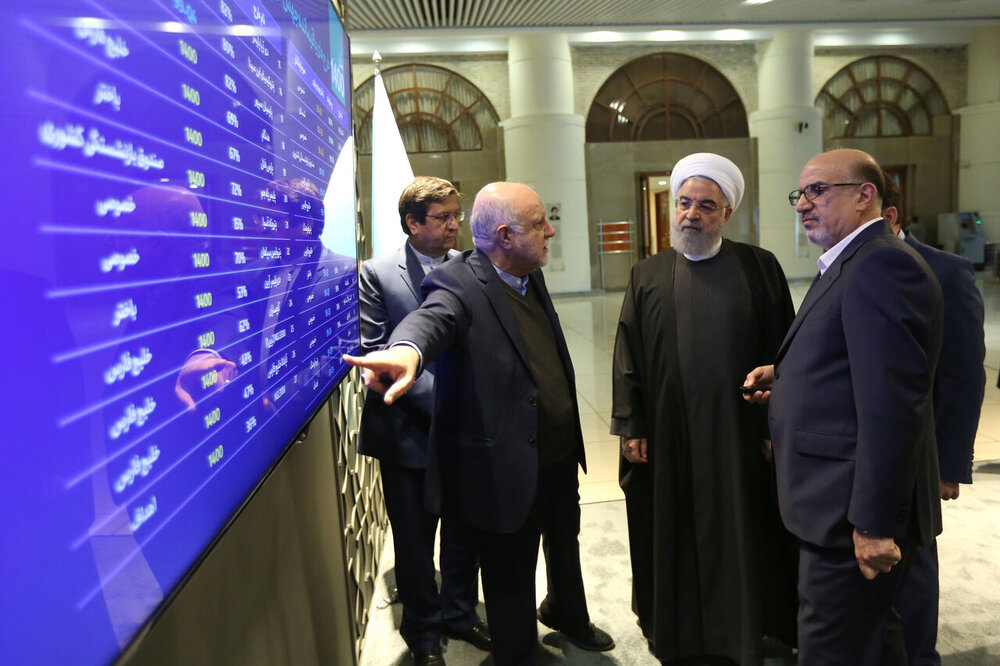Petchem industry at forefront of Iran’s non-oil exports

TEHRAN – President Hassan Rouhani stressed the significant role of Iran’s petrochemical industry in the country’s economy in the face of U.S. sanctions, saying that it is at the forefront of the country’s non-oil exports, IRNA reported.
Rouhani made the remarks in a meeting attended by the officials and managers of the industry, including the Oil Minister Bijan Namdar Zanganeh, on the occasion of the National Petrochemical Industry Day in Tehran on Monday.
Mentioning the industry as an important source of revenues for the country, the president said: “The enemy thought that our foreign revenues would be impaired if the crude oil revenue declined.”
“According to the governor of the central bank, 20 percent of the country's foreign currency needs and more than 50 percent of the injections to the NIMA system [Iran's domestic Forex Management Integrated System] are provided by the petrochemical industry,” Rouhani added.
He further mentioned the oil ministry’s programs for the development of the petrochemical industry and noted: “According to statistics, by the end of the second leap, our petrochemical production capacity is projected to reach 100 million tons per year.”
Noting that the industry’s third development leap has already begun and is expected to be completed after the Iranian year 1400 (starts in March 2021), Rouhani added: the production capacity will be increased from 100 million tons to 133 million tons at the end of the third leap, which is a big step.
He put the country’s earnings from the petrochemical sector at about $17 billion a year, saying that by the end of the second leap, the figure will reach $25 billion a year and it will exceed $37 billion in the third leap.
A movement toward future
Zanganeh for his part referred to some of the policies emphasized by the government, such as preventing crude sales, development, and employment, saying "The petrochemical industry has been well on its way to achieving these policies, and setting up each petrochemical plant has been a step toward further development of the downstream industries, and creating thousands of jobs and sub-units."
The minister noted the importance of diversification of products, greater use of liquid feedstock and land preparation, as some of the important factors to be taken into account for the future development of the petrochemical industry, and said: “In this industry, great work has been done in creating knowledge, indigenizing technologies, and cooperation with universities.”
“Also, several institutes have been established to work on new technologies related to the petrochemical industry,” he added.
Zanganeh also mentioned the projects underway for the expansion of the country’s feedstock production capacity and said that completing such projects will create significant feedstock sources for the country’s petrochemical plants along with the South Pars, and will also prevent the burning of flare gases.
Accompanied by Behzad Mohammadi, the head of National Petrochemical Company (NPC), President Rouhani and Zanganeh also visited an exhibition of the Iranian petrochemical industry’s latest achievements which was held to celebrate the national petrochemical industry’s day.
EF/MA
Photo: President Hassan Rouhani (middle), Oil Minister Bijan Namdar Zanganeh (L) and the Head of National Petrochemical Company (NPC) Behzad Mohammadi (R) visit an exhibition of the Iranian petrochemical industry’s latest achievements on the occasion of the national petrochemical industry’s day in Tehran on Monday.
Leave a Comment